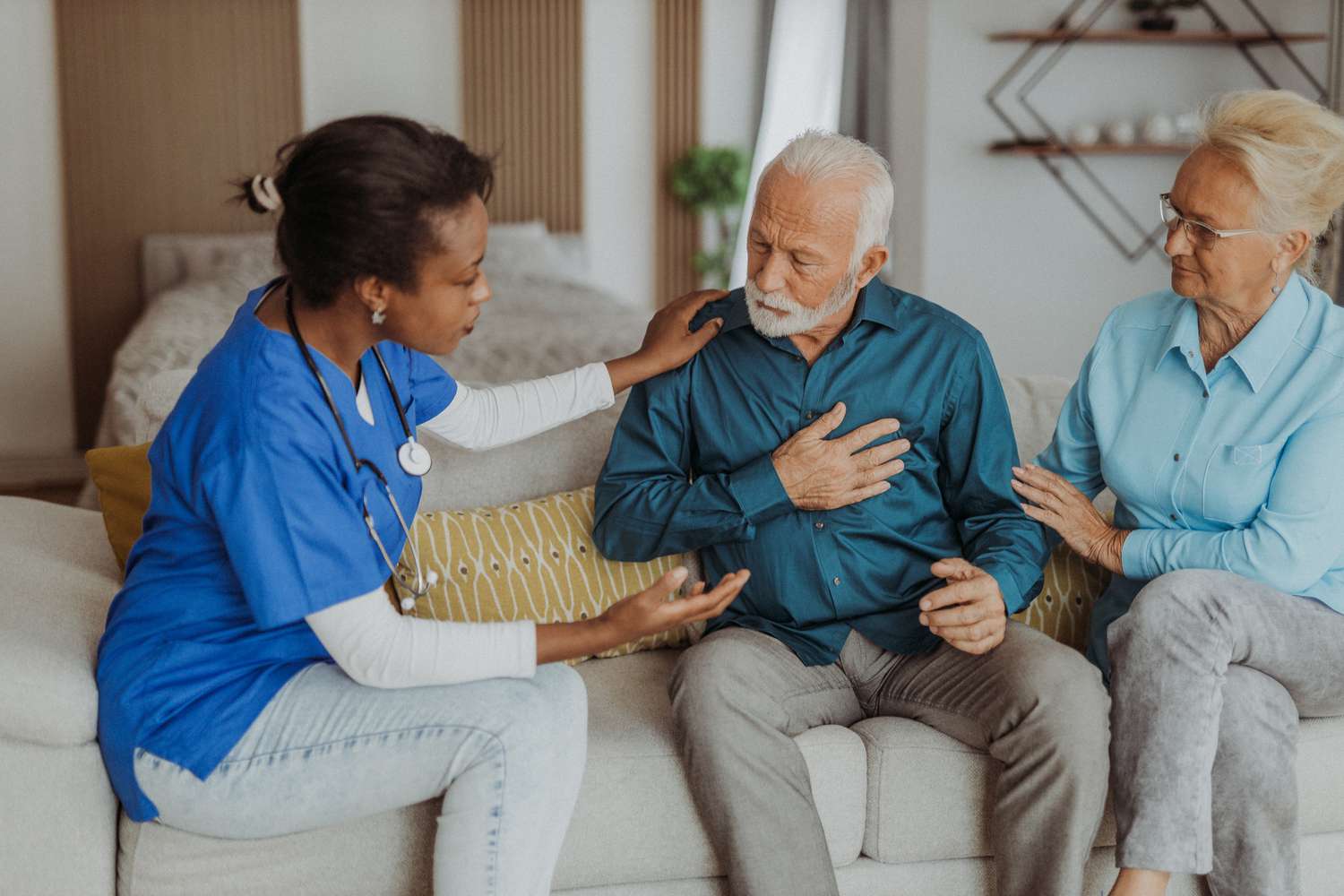Lung cancer and depression often coexist, and lung cancer patients have higher rates of depression and anxiety than the general population. One in four people diagnosed with cancer will experience sadness, loss of hope, lack of interest in pursuing life, and other signs of depression.
Surgery, chemotherapy, and other treatments are key to lung cancer treatment, but mental health needs must also be addressed, as there is evidence that depression and anxiety can affect prognosis. Support groups, palliative care, exercise and digital apps have been shown to be effective in relieving symptoms.
milan2099/Getty Images
lung cancer and depression
Receiving a cancer diagnosis and undergoing treatment can be difficult and can lead to sad and hopeless thoughts and feelings. Serious physical health conditions can affect your mental health, but lung cancer can have an even greater impact.
Historically, a diagnosis of lung cancer has been thought to have led to stigma, or negative associations, because an individual’s smoking behavior led to the development of lung cancer. Stigma can cause:
Negative thoughts from yourself or others. Low self-esteem Shame, guilt, and remorse Bullying and negative interactions with others
Recent research shows that there is less evidence that stigma itself leads to depression, although a history of drinking and smoking remains a risk factor for depression. It’s also important to remember that even people who have never smoked can develop lung cancer, even though smoking accounts for one in three cancer deaths (and most lung cancers) in the United States. is.
Other factors that affect depression include the type of cancer and the effectiveness of treatment.
signs of depression
Signs of depression vary from person to person and can range from mild to severe. To be diagnosed with depression, a person must experience low mood and decreased interest or enjoyment in daily life, along with other symptoms, for at least two weeks.
Ongoing feelings of sadness, anxiety, or numbness (like a loss of sensation) Feelings of hopelessness, guilt, low self-esteem, or excessive pessimism Loss of interest or enjoyment in activities you once enjoyed Fatigue, low energy , or slowness of movement, speech, or reactions; restlessness, or urge to move; problems with memory, concentration, or decision-making; changes in sleep or eating habits (increased or decreased); Unexplained aches, pain, or discomfort suicidal thoughts, attempts, or thoughts of death
The American Cancer Society notes that certain behaviors can also be signs of depression. These behaviors include:
Frequent crying Feeling angry or irritable more than usual Sexual difficulties Increased or excessive drug or alcohol use Separation from friends and family
suicide prevention helpline
If you are having suicidal thoughts, contact the National Suicide Prevention Lifeline (988) for support and assistance from a trained counselor. If you or a loved one is in immediate danger, call 911.
ask for help
Depression is treatable and there are many things people can do to cope. If depression is identified or suspected, it is important to seek help.
Resources are available such as:
Primary Care Providers Mental Health Providers (Therapists, Psychologists, Psychiatrists) National Suicide Prevention Lifeline: 988 Support Groups
Health professionals can check for depression through surveys and questions. These tests are often covered by insurance and may not cost the patient anything.
process
The most common treatments for depression are medication and talk therapy. Medication and talk therapy may also be used together. Electroconvulsive therapy (ECT) is a treatment that uses electrical current to stimulate and modulate the brain and may be used when medications and talk therapy are not effective.
Medications for treating depression include:
Selective Serotonin Reuptake Inhibitors (SSRIs) Serotonin Norepinephrine Reuptake Inhibitors (SNRIs)
Psychotherapy for depression includes the following methods:
Cognitive behavioral therapy focuses on the connections between thoughts, feelings, and behaviors to change outcomes. Interpersonal therapy focuses on relationships, communication skills, and conflict resolution. In problem-solving therapy, you learn how to manage stress and overcome challenges using specific tools and strategies. Psychodynamic therapy considers childhood experiences and how past experiences can be used to change outcomes. Relationship therapy or family therapy involves talk therapy with intimate partners and family members to help them cope together.
Lifestyle changes and coping techniques may also help with depression. These options include:
Nutrition Exercise Gratitude Habits Learn About Depression Stress Relief Volunteer Spending Time with Friends and Family
prevention
For people who are more likely to experience depression and other mental health problems, such as those with long-term physical health conditions such as cancer, preventive support, before symptoms of depression begin. It is important to receive treatment that can help you avoid this.
Talk therapy and counseling can be used as preventive support. For example, a person diagnosed with lung cancer but with no signs of depression will cope with the challenges of cancer diagnosis and treatment in hopes of avoiding some of the mental health issues that may surface. You can consult a mental health professional to help you.
Preventive therapy helps cancer patients:
Process thoughts, feelings, and emotions Learn how to cope Communicate better with family, friends, and your medical team Follow through on your treatment plan Identify their needs and how to meet those needs
summary
There is a link between lung cancer and depression. Lung cancer patients are even more likely to experience depression than patients with other types of cancer.
Depression is treatable, and multiple options are available, including talk therapy, medication, or both. Seeking help for depression is important to improve both depression symptoms and lung cancer outcomes.
A word from Berrywell
Diagnosing and treating lung cancer can be difficult, but facing depression at the same time can be even more difficult. If you or someone you know is showing signs of depression, such as feelings of sadness or decreased interest in activities, you need help. Seek support from a health care professional, such as your primary care or mental health provider.

